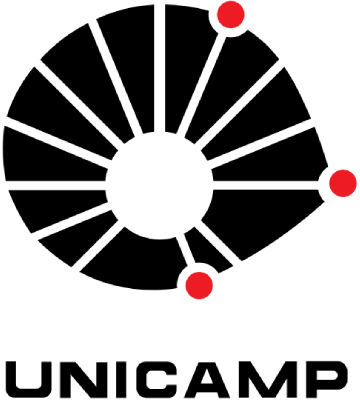
Programa de internacionalização
Com o objetivo de fomentar a criação e consolidação de planos estratégicos de internacionalização, a formação de redes de pesquisas internacionais, promover a mobilidade de docentes, pesquisadores e discentes vinculados a programas de pós-graduação Stricto Sensu com cooperação internacional e, por fim, fomentar um ambiente internacional nas instituições de pesquisa, a CAPES criou o Programa Institucional de Internacionalização – CAPES - PrInt. Neste sentido, a Unicamp foi uma das universidades selecionadas para participar desse programa de internacionalização.
Aqui na Unicamp, o PrInt funciona de maneira descentralizada, onde foram formulados projetos institucionais de internacionalização, onde a estratégia foi desenvolvida a partir da elaboração de temáticas transversais que permitiria a integração de docentes e pesquisadores de um ou mais Programas de Pós-Graduação.
Neste sentido, nosso Programa de Pós-Graduação está inserido no PrInt através do engajamento e coordenação de projetos.
O PrInt é hoje uma das principais ferramentas de internacionalização de nosso Programa e tem sido peça fundamental para consolidar as redes e acordos de pesquisa internacionais presentes no Programa.
Ressaltamos ainda que os resultados obtidos no âmbito do PrInt, como produções, acordos formulados, redes de pesquisa, entre outros, podem ser consultados na aba Estatísticas de nossa página.
Abaixo relacionamos os dados dos projetos PrInt aos quais se inserem os docentes e discentes de nosso Programa:
Formal approaches to philosophy of religion and analytic theology
Responsáveis: FABIO MAIA BERTATO
John Templeton Foundation Grant ID 61108 The Big Questions underlying this project are: How can the Formal Logic methods help us to understand and deep the metaphysical and theological truths? How and in which extent the conceptual framework provided by Neo Scholasticism can help us to address a number of interdependent problems in Philosophy of Religion, Analytic Theology, Formal Metaphysics, and Formal Epistemology?
Genericity and arbitrariness. Or how to speak of the unspeakable
Responsáveis: Marco Antonio Caron Ruffino
Membros: DANIEL SANTIAGO JOCKWICH MARTINEZ, Ekaterina Alexandrovna Kubyshkina, HUGO LUIZ MARIANO, JOAO VITOR SCHMIDT, MATTIA PETROLO, PEDRO TEIXEIRA YAGO, RENATO REIS LEME
The project deals with the interplay of language, logic, and mathematics. The main theme of the project is the study of the expressivity of our language when applied to mathematics concepts. The chosen perspective is that of the notion of arbitrariness, specifically in the context of set theory. The goal of this project is to investigate how modern set theory, by means of the notion of genericity can formalize and capture the notion of arbitrariness. The project is divided in three main sections: historical, philosophical, and logical.
Modalities in Substructural Logics: Theory, Methods and Applications (MOSAIC)
Responsáveis: Marcelo Esteban Coniglio
Membros: Lluis Godo, Tommaso Flaminio
Logic is a discipline that studies correct reasoning and true statements in a formal environment. Languages, deductive systems, syntax and semantics are its basic tools. Classical modal logics form a family of logics that focus on modes of truth, that is to say, they analyse if a statement is 'necessarily' or 'possibly' true, in a given situation. The EU-funded MOSAIC project is taking a closer look at modal logics based on the general setting of substructural logics.

